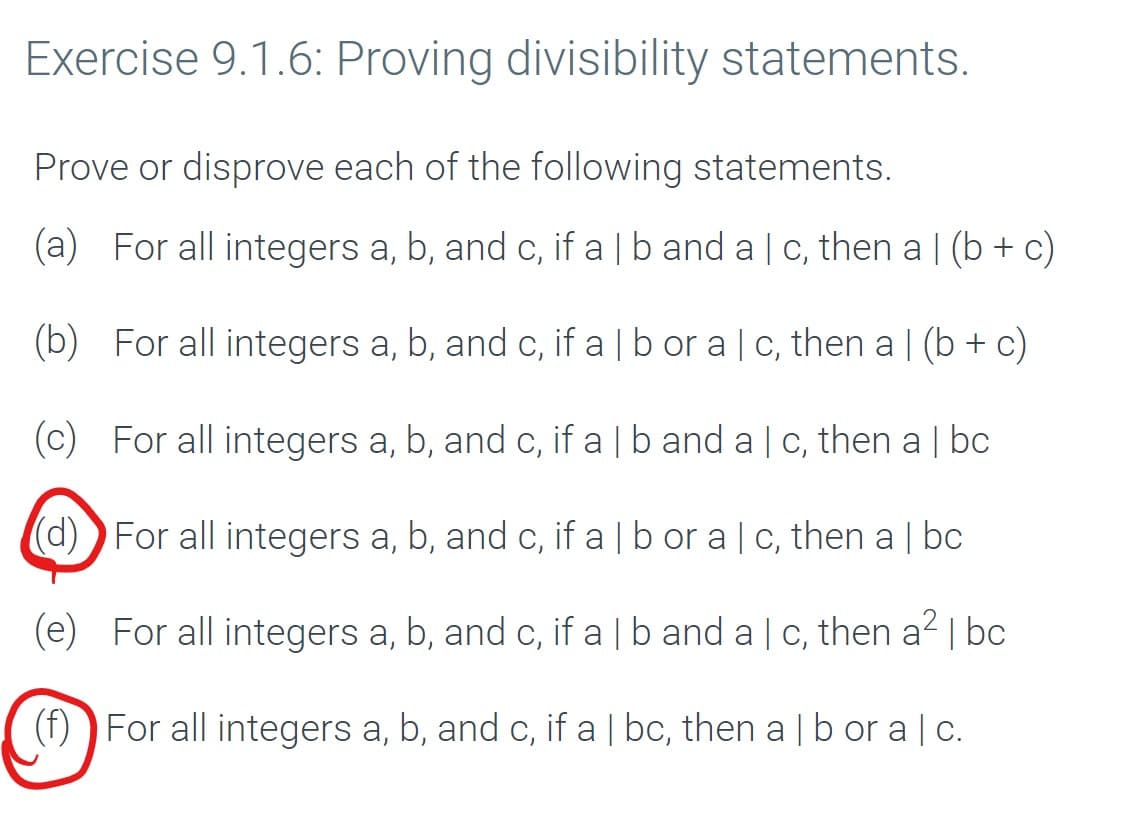(d))For all integers a, b, and c, if a | b or a c, then a | bc (e) For all integers a, b, and c, if a | b and a c, then a? | bc (f) ) For all integers a, b, and c, if a | bc, then a |b or a | c.
(d))For all integers a, b, and c, if a | b or a c, then a | bc (e) For all integers a, b, and c, if a | b and a c, then a? | bc (f) ) For all integers a, b, and c, if a | bc, then a |b or a | c.
Elements Of Modern Algebra
8th Edition
ISBN:9781285463230
Author:Gilbert, Linda, Jimmie
Publisher:Gilbert, Linda, Jimmie
Chapter2: The Integers
Section2.2: Mathematical Induction
Problem 35E
Related questions
Question
100%
Only need part(d) and part(f). Thank you for the help!

Transcribed Image Text:Exercise 9.1.6: Proving divisibility statements.
Prove or disprove each of the following statements.
(a) For all integers a, b, and c, if a | b and a c, then a | (b + c)
(b) For all integers a, b, and c, if a | b or a c, then a | (b + c)
(c) For all integers a, b, and c, if a | b and a | c, then a | bc
(d)) For all integers a, b, and c, if a | b or a c, then a | bc
(e) For all integers a, b, and c, if a | b and a c, then a2 | bc
(f)
For all integers a, b, and c, if a | bc, then a b or a c.
Expert Solution
This question has been solved!
Explore an expertly crafted, step-by-step solution for a thorough understanding of key concepts.
This is a popular solution!
Trending now
This is a popular solution!
Step by step
Solved in 2 steps

Knowledge Booster
Learn more about
Need a deep-dive on the concept behind this application? Look no further. Learn more about this topic, advanced-math and related others by exploring similar questions and additional content below.Recommended textbooks for you

Elements Of Modern Algebra
Algebra
ISBN:
9781285463230
Author:
Gilbert, Linda, Jimmie
Publisher:
Cengage Learning,

Elements Of Modern Algebra
Algebra
ISBN:
9781285463230
Author:
Gilbert, Linda, Jimmie
Publisher:
Cengage Learning,